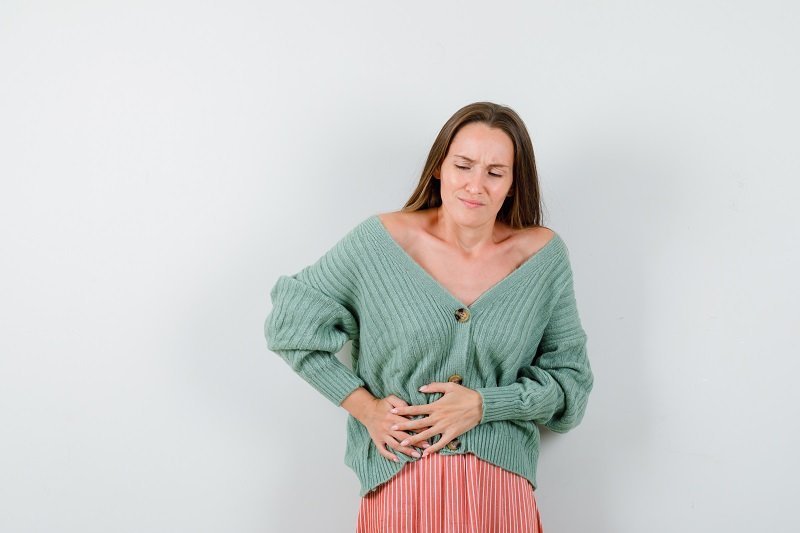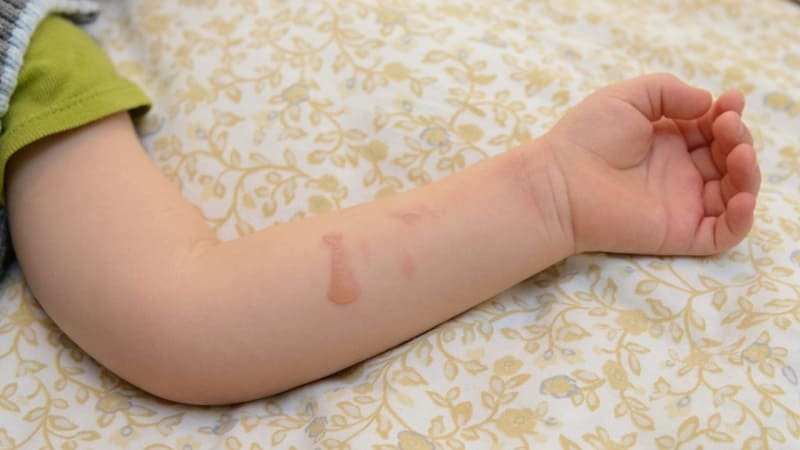Introduction
Hernias can affect women in the USA, and it is essential to recognize the unique aspects of hernia pain in women. In this comprehensive article, we will delve into the causes, symptoms, and treatment options for hernia pain in women, providing valuable insights tailored to the USA audience.
What is a Hernia?
A hernia occurs when an organ or tissue pushes through a weak spot in the abdominal wall. While the types of hernias are similar in both men and women, certain factors are specific to women in the USA. It is crucial to understand the causes and potential locations of hernias in women.
Causes of Hernia Pain in Women
Hernias in women can develop due to a variety of reasons.
- Weakness in the abdominal wall is a primary cause, which can be a result of genetics or previous surgeries.
- Pregnancy and childbirth also contribute to hernias in women, as the increased pressure on the abdominal muscles can lead to hernia formation.
- Additionally, chronic coughing, heavy lifting, obesity, and excessive weight gain can strain the abdominal wall and increase the risk of hernias.
Types of Hernia in Women
In women, hernias can manifest in various locations.
- The most common types include inguinal hernias, which occur in the groin area, and femoral hernias, which develop in the upper thigh region.
- Umbilical hernias form around the belly button, while incisional hernias occur at the site of a previous surgical incision.
- Hiatal hernias involve the upper stomach protruding through the diaphragm.
Symptoms of Hernia Pain in Women
Women with hernias may experience specific symptoms. These include,
- A visible bulge or swelling at the hernia site, discomfort or pain during physical exertion or lifting, and a burning or sharp pain in the affected area.
- Hiatal hernias can cause additional symptoms such as nausea, vomiting, and acid reflux.
- Pain with bowel movements: Certain types of hernias, such as an inguinal or femoral hernia, can cause pain or discomfort during bowel movements in women.
Discomfort while coughing or sneezing: The act of coughing or sneezing can put strain on the abdominal muscles, leading to increased discomfort or pain at the hernia site.
Pressure or heaviness: Women may feel a sensation of pressure or heaviness in the abdominal area, especially when standing or performing activities that strain the abdominal muscles.
Diagnosis of Hernia Pain in Women
To diagnose hernia pain in women, healthcare professionals will conduct a physical examination and assess the medical history. Imaging tests such as Ultrasound, CT scan, or MRI may be used to confirm the presence of a hernia and determine its size and location. Accurate diagnosis is crucial for appropriate treatment planning.
Treatment Options for Hernia Pain in Women
The treatment approach for hernia pain in women depends on various factors,
- including the size and type of the hernia, the severity of symptoms, and the individual’s overall health.
- Non-surgical management may involve lifestyle modifications such as weight management, avoiding activities that strain the abdominal muscles, and proper lifting techniques.
- Surgical repair, such as herniorrhaphy, hernioplasty, or laparoscopic surgery, may be recommended for larger or symptomatic hernias. Prompt treatment is essential to prevent complications.
Lifestyle Modifications and Self-Cares for Hernia Pain in Women
Women can take proactive steps to manage hernia pain and reduce the risk of complications. Maintaining a healthy weight through a balanced diet and regular exercise can alleviate pressure on the abdominal wall. It is crucial to avoid activities that strain the abdominal muscles and practice proper lifting techniques to minimize the risk of hernia development or worsening symptoms.
Complications and Risk Factors
Hernias can lead to complications such as incarceration and strangulation. Incarceration occurs when a hernia becomes trapped or stuck, causing severe pain and potentially cutting off blood supply to the trapped tissue. Strangulation is a serious complication that requires immediate medical attention. Factors such as obesity, pregnancy, and chronic coughing increase the risk of complications in women.
Seeking Medical Help for Hernia Pain
Women experiencing hernia pain should consult a healthcare professional in the USA. Prompt medical attention allows for an accurate diagnosis, personalized treatment plans, and addressing any concerns or questions specific to hernias in women. Healthcare professionals can provide guidance on suitable treatment options based on individual circumstances.
Prevention of Hernias in Women
Prevention is key to reducing the risk of hernias in women. Maintaining a healthy lifestyle, including a nutritious diet and regular exercise, can help strengthen the abdominal muscles. Women should practice proper lifting techniques, avoid excessive strain on the abdomen, and seek medical guidance during pregnancy and postpartum.
Conclusion
Understanding hernia pain in women is crucial for early detection, proper diagnosis, and effective treatment. By recognizing the causes, symptoms, and available treatment options, women in the USA can take proactive steps to manage hernia pain and prevent complications. Seeking medical help and adopting a healthy lifestyle are vital for maintaining optimal abdominal health. Consultation with healthcare professionals in the USA is recommended for personalized advice and guidance on hernia-related concerns.
Faq's Relating to Hernia Pain in Womens
-
1. How can I recognize hernia pain as a woman?
Hernia pain in women may manifest as a visible bulge or swelling at the hernia site, discomfort or pain during physical activity or lifting, or a burning and sharp pain in the affected area. It is essential to consult with a healthcare professional for an accurate diagnosis.
-
2. Should I be concerned about hernia pain during my first pregnancy?
Pregnancy can put added pressure on the abdominal muscles and increase the risk of developing a hernia. If you experience symptoms such as pain or a visible bulge, it is advisable to consult with a healthcare professional for proper evaluation and guidance.
-
3. Can hernia pain in women go away on its own?
In some cases, small hernias may not cause significant pain or discomfort and may not require immediate treatment. However, it is crucial to consult with a healthcare professional for an accurate diagnosis and personalized advice on managing your specific condition.
-
4. When should I seek medical help for hernia pain?
It is recommended to seek medical help if you experience persistent or worsening hernia pain, notice a growing bulge, have difficulty eating or drinking, or experience other concerning symptoms. A healthcare professional can provide an accurate diagnosis and recommend appropriate treatment options.
-
5. What can I expect during the diagnosis process for hernia pain?
The diagnosis of hernia pain typically involves a physical examination and a discussion of your medical history. In some cases, imaging tests such as ultrasound, CT scan, or MRI may be ordered to confirm the presence and determine the size and location of the hernia.
-
6. Are there non-surgical options to manage hernia pain in women?
Non-surgical management may include lifestyle modifications such as weight management, avoiding activities that strain the abdominal muscles, and practicing proper lifting techniques. However, it is essential to consult with a healthcare professional for personalized advice.
-
7. Will I need surgery for hernia pain as a woman?
The need for surgery depends on various factors, including the size and type of hernia, the severity of symptoms, and your overall health. A healthcare professional can assess your specific condition and recommend the most appropriate treatment options, which may include surgical repair.
-
8. Are there any risks or complications associated with hernias in women?
Hernias can lead to complications such as incarceration, where the hernia becomes trapped, or strangulation, where blood supply to the herniated tissue is compromised. These complications require immediate medical attention. It is important to consult with a healthcare professional for timely diagnosis and treatment.
-
9. Is hernia pain common among women after childbirth?
While hernia pain can occur after childbirth due to the strain placed on the abdominal muscles during pregnancy, it is important to consult with a healthcare professional for an accurate diagnosis. Postpartum recovery and appropriate management of any hernia-related symptoms are crucial.
-
10. What questions should I ask my healthcare professional about hernia pain in women?
You may consider asking about the specific type and location of the hernia, available treatment options, potential risks or complications, expected recovery time, and any lifestyle modifications that can help manage the condition. Asking for clarification or further information is always encouraged.
-
11. where can I find a healthcare professional who specializes in hernia pain in women?
You can start by consulting your primary care physician or gynecologist, who may refer you to a specialist such as a hernia surgeon or general surgeon. They can provide specialized knowledge and expertise in managing hernia pain in women.






